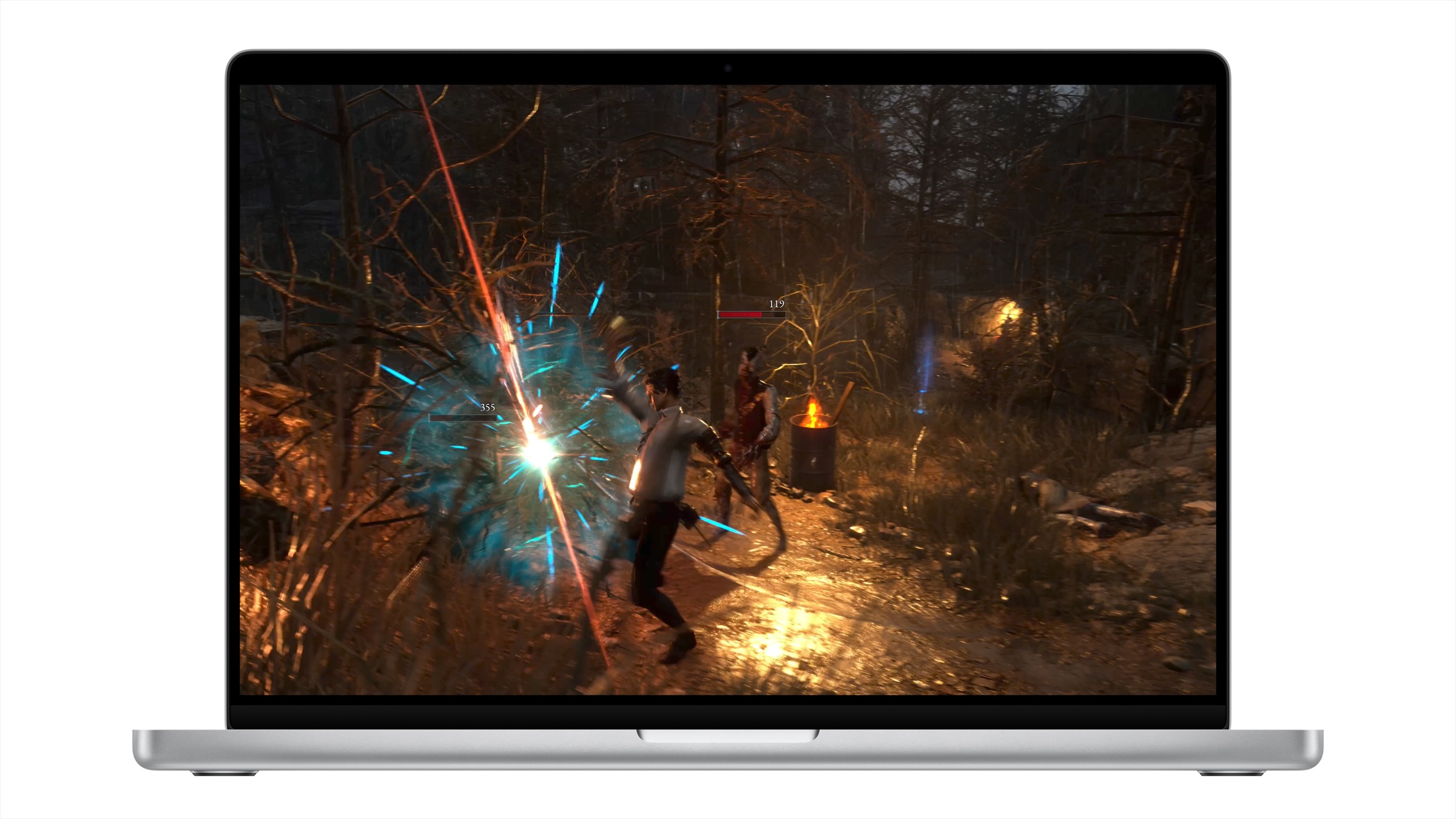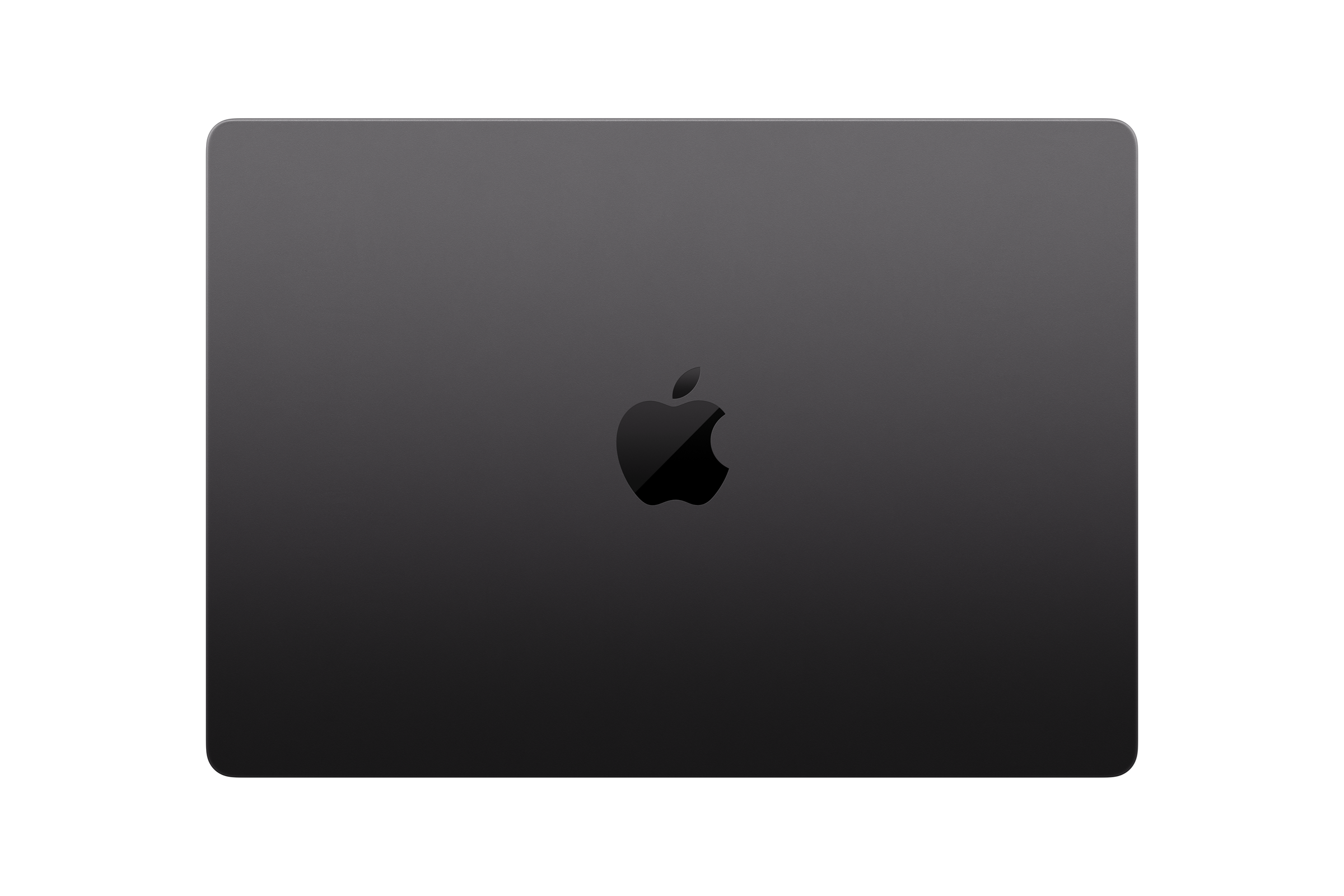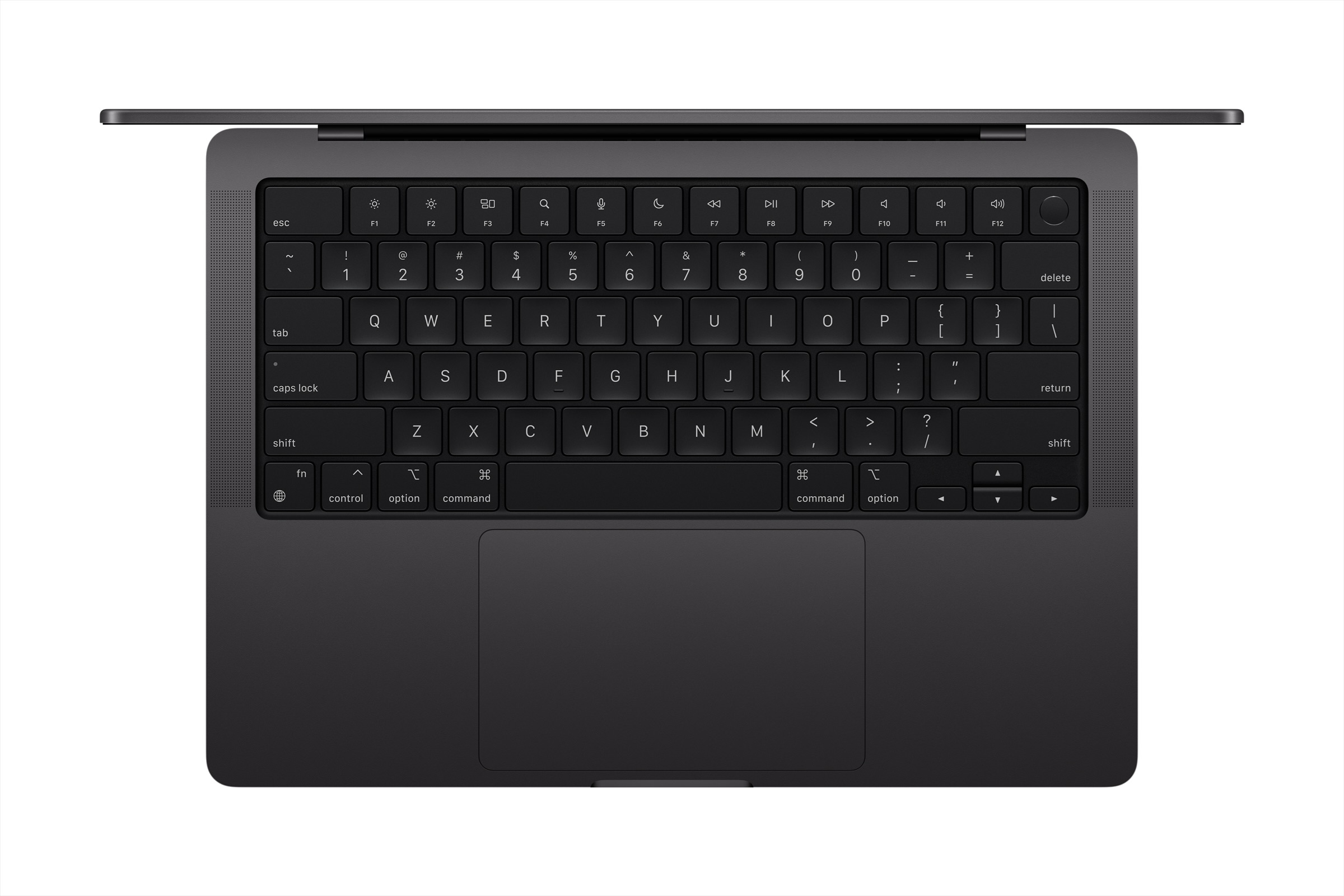[ad_1]
Apple just announced a (nearly) complete overhaul of its first-party silicon line, in the form of the M3, M3 Pro and M3 Max. While the new 24-inch iMac is arriving with the M3, the MacBook Pro line is easily the biggest benefactor of today’s Scary Fast event.
The high-end laptop is arriving in 14- and 16-inch configurations. The smaller version has an option for all three new chips, while the larger is only available in M3 Pro and M3 Max flavors. You can read a lot more about what the chips bring to the table over here, but again, the GPU is very much the centerpiece.
The arrival of hardware-based ray tracing and mesh shading are the centerpiece of that centerpiece. They bring big improvements to the systems’ ability to render graphics and take Apple a step closer to becoming the gaming powerhouse it dreams of becoming. Apple is also introducing Dynamic Caching this generation, which does a much more efficient job allocating memory as needed.

Image Credits: Apple
Power efficiency is, as ever, also a big selling point for this latest batch of Apple silicon. The company says you should be able to get up to 22 hours of battery life on a charge — something I’m looking forward to testing on an upcoming flight. It notes that the system performance is the same whether or not it’s plugged in.
Here’s Apple on what the M3 Max brings to the table:
With MacBook Pro with M3 Max:
- Simulation of dynamical systems in MathWorks MATLAB is up to 5.5x faster than the fastest Intel-based MacBook Pro, and up to 2x faster than the 16-inch MacBook Pro with M1 Max.
- Render performance in Maxon Redshift is up to 5.3x faster than the fastest Intel-based MacBook Pro, and up to 2.5x faster than the 16-inch MacBook Pro with M1 Max.
- Noise reduction in Blackmagic DaVinci Resolve Studio is up to 2.7x faster than the fastest Intel-based MacBook Pro, and up to 65 percent faster than the 16-inch MacBook Pro with M1 Max.

Image Credits: Apple
I’m looking forward to benchmarking the thing.
It’s interesting to be entering a period where we can seriously consider gaming on Apple laptop, and I’m curious how good a job the M3 ultimately does versus the Pro or Max. It will also be interesting to see how the new chip exists on the next round of MacBook Air, given their lack of fans. Both new Pros have airflow system, though Apple claims you’ll rarely hear them fire up.
All models sport a Liquid Retina XDR display, capable of getting 20% brighter when viewing SDR (Standard Dynamic Range) content at up to 600 nits. With HDR (High Dynamic Range), meanwhile, you get 1600 nits at peak brightness and 1000 nits sustained. Like the new iMac, they also feature a six-speaker array and a 1080p camera.

Image Credits: Apple
The other big news in all this? Color. Specifically Space Black. I would describe the color as a few shades darker than Midnight. It’s truly a black color, with the same aluminum finish you’ll find on the rest of the line.
Along with the new iMac, both systems are available for preorder, starting today. It will hit retail a week from tomorrow. The 14-inch starts at $1,599. The M3 Pro bumps that up to $1,999, while the 16-inch M3 Pro starts at $2,499. No word yet on pricing for the M3 Max. No exact launch date for that model, either.
[ad_2]
techcrunch.com




